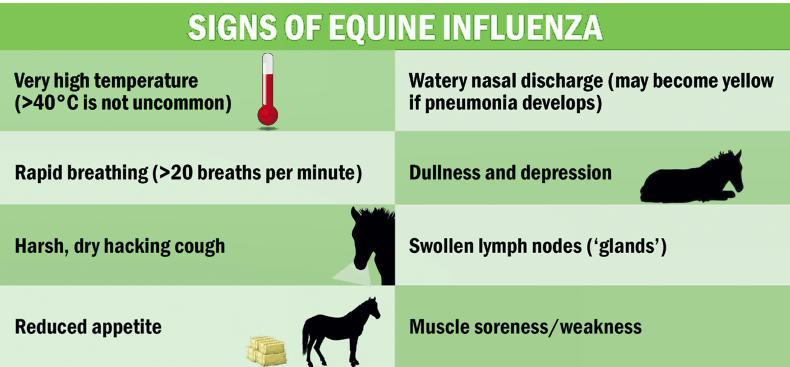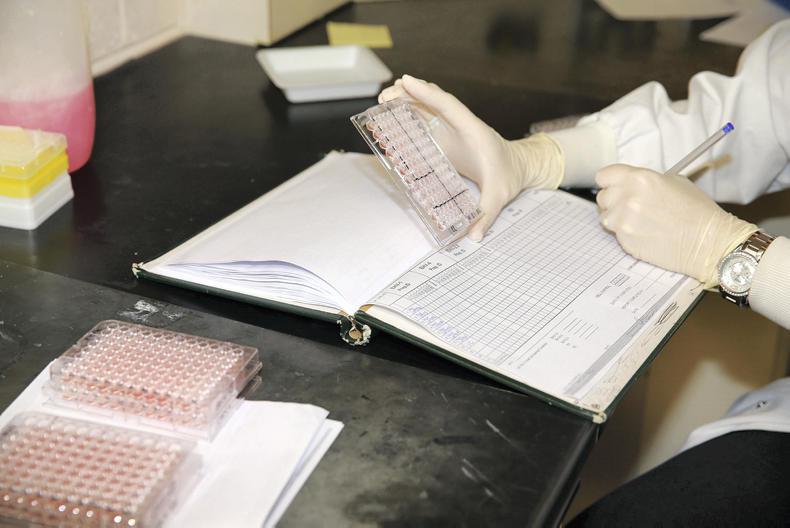EQUINE influenza is common across the world, only Australia, New Zealand and Iceland are free of it. It is highly contagious and can cause significant problems for individual owners and the entire equine industry.
Thankfully, equine influenza does not infect people and does not pose a risk to human health. However, it can cause severe illness in infected horses, especially younger animals and/or those who have never been vaccinated.
The virus enters the horse’s body via the nostrils. It then invades the cells lining the airway where it multiplies rapidly. Infected cells burst, releasing thousands of new virus particles. The horse then coughs and breathes these out into the environment.
Horses up to five years of age are typically the most severely affected. Equine flu is rarely fatal and most of the signs will resolve within seven days, however, coughing typically lasts for three weeks or more.
Horses should be rested until the cough is gone as they are at greater risk of lung disease and other complications during this period.
What should I do if a horse develops signs of flu?
- Isolate immediately – place the horse in a stable with no contact or shared airflow with other horses
- Take the horse’s temperature
- Keep them warm, quiet and comfortable
- Contact your veterinary surgeon – let them know that you think it might be flu so that they can bring suitable sample containers and take precautions to reduce the risk of spread
- Check the horse’s vaccination history and have it ready for the veterinary surgeon
- Check the vaccination status of all other horses on the premises
- Do not allow any horses to enter or leave the premises until at least one week after the last sick horse has recovered (this may take several months)
- Ideally have one person to handle the sick horse only – if this is not practical, attend to the healthy ones first
- Put on overalls, boots, a hat/hair cover and disposable gloves when handling the sick horse
- Keep your protective clothing plus all equipment for this animal in the isolation area
- Place a foot dip containing a correctly diluted disinfectant that is effective against viruses outside the stable and ensure it is kept topped up and used – contact your veterinary practice for specific advice
- Wash and dry your hands after handling the sick horse
DIAGNOSIS
Even if it is obvious from the horse’s appearance that it may have flu it is worth having your veterinary surgeon collect samples within the first 24-48 hours.
This will help to identify the specific strain of virus involved and allow more effective control measures to be put in place.
The Irish Equine Centre offers a free influenza testing service on all suspect cases with funding provided by the Department of Agriculture for this purpose. Horses in training are required to be vaccinated for equine influenza in Ireland under the Rules of Racing. The disease is however being reported in vaccinated horses.
The Irish Horseracing Regulatory Board is strongly recommending that all horses which have not had a vaccine containing Clade 1 virus within the last six months are given a booster vaccination as soon as possible.
A longer version of this article was published on pages 97-98 of The Irish Field last week.


 This is a subscriber-only article
This is a subscriber-only article
 It looks like you're browsing in private mode
It looks like you're browsing in private mode










SHARING OPTIONS: